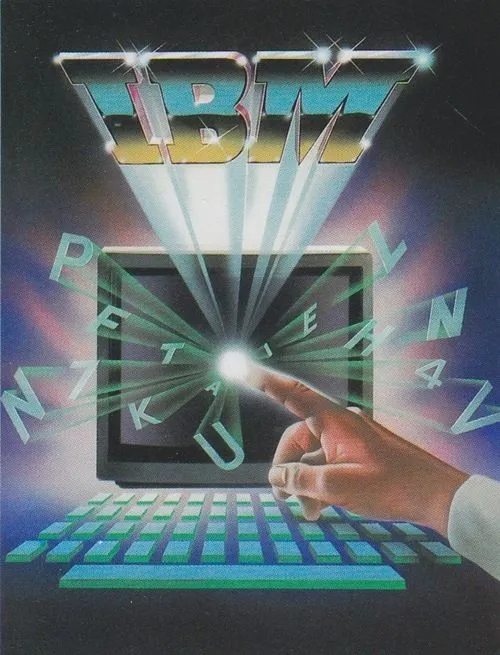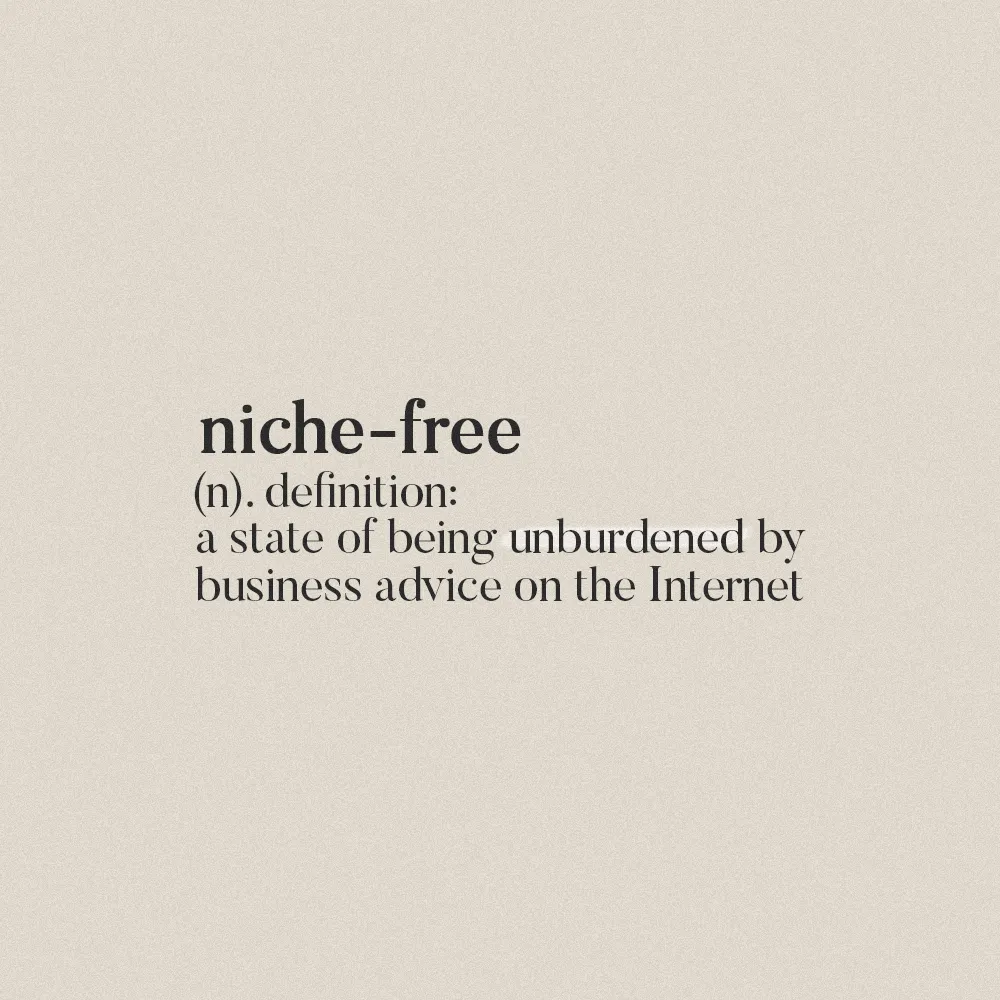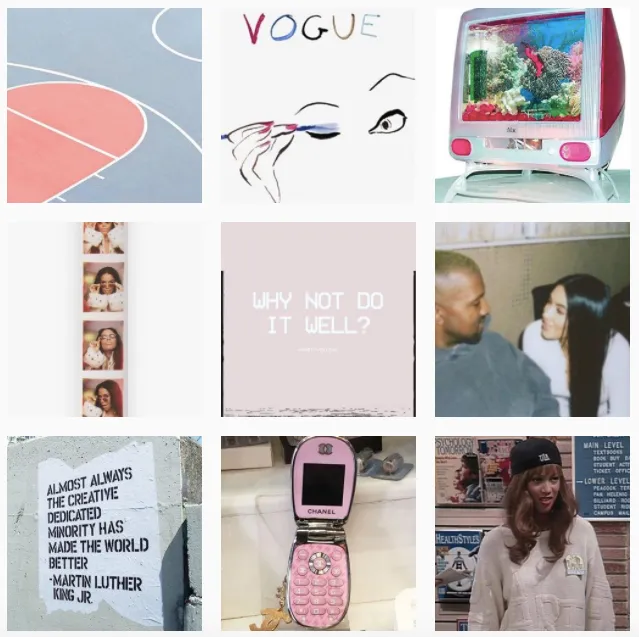#NicheFree: A state of being unburdened by business advice on the Internet.

1980's IBM advertisement c/o IBM. Found on Pinterest.This thought originally appeared on my website Pretty Decent, which I am slowly migrating here. The message has been adapted thanks to new knowledge and this badass new content platform, Steemit.

Pretty Decent started as my Instagram handle. I had to DM and offer to pay a boy for it. He obliged for free — apparently he was getting teased for it anyway.
Next, Pretty Decent was a personal blog.
Then it was a rap blog.
Finally I gave up and decided it was just a reflection of me.
On Instagram, I call Pretty Decent an “Internet Cafe.” I felt that was the most accurate way to describe it: a collection of images, quotes and content pieces that reflect the inner-workings of my brain.
The trouble is, and always has been, I have a thousand ideas spawning in my head at all times. One day I want to doodle about Jay-Z and Beyonce, the next day I want to talk about growing organic Instagram followers. There’s rarely a middle ground and hardly ever a definitive title for what I want my business (or my "personal brand," eugh) to become.
In the online business community, there’s a recurring piece of advice: find a niche.
I heard it in journalism school, too. Pick a niche, pick a trade, pick a beat. Choose one tiny community to serve, serve them well, and scale up.
The trouble comes when we feel like we’re perfectly capable of being everything to everyone all at once. How, then, do we decide which niche is right for us?
Better yet, how do we find a niche, decide on a platform, pick an Instagram business category, design a product, create a brand and a narrow down a target customer?
My advice: be niche-free.
Instead of building a community around your niche, build a community around you. Focus on your message and the passion in your heart. Either the Big Idea will come, or one of the Little Ideas will strike a chord.
In my experience both with my own community and the clients I’ve worked for, it’s not about the perfectly-worded catchphrase. It’s about you.

But wait, don’t I need to find a niche to be profitable?
Short answer? No.
Don’t get me wrong: I don’t think you should go off the rails. To quote Desus and Mero, the brand should always be strong. Your social feeds should reflect a common theme, and your content should always serve a purpose — even if that purpose is simply to inspire someone or make them smile.

Follow me on Instagram: @prettydecent
Being niche-free means not limiting yourself for the sake of profit.
If I blogged solely about blogging or digital marketing, I’m positive I would feel unfulfilled — despite the fact that I’m perfectly qualified to work in both of those mediums full-time. I’m also positive that my revenue streams would eventually dry up, because I lack the drive to continuously create content about work when I already work, like, all the time.
Yes, those courses and Pinterest-optimized blog posts that promise $5,000 a month are awesome, but making bank from technical writing doesn’t reflect the kind of brand I want to build. I’m guessing you probably feel me on that one.
What does being niche-free look like?
To be successful as a digital entrepreneur, you have to be open to every opportunity.
I’ve written about marketing, relationships, music and video production. I’ve written scripts for explainer videos, I’ve created infographics about the brain. I just finished a website for a skin care company and next I'm editing down videos for a marketing course. Just in the last two weeks, I learned about Steemit and it's completely revolutionized my 2018 content strategy.
This isn’t to say you can’t be incredibly profitable in one trade for one industry. Wedding photographers certainly bring home the bacon.
For me, however, and for a ton of creatives like me: that strict “find a niche and stick to it” model simply does not work.
Niche-free does not mean target-less.
I never stop talking about target customers. I’ll be the first person to DM you an Instagram ad I think was made just for you. These are the type of topics I geek out on: that a company can, through a process of elimination and data research, find exactly the person that will buy their product.
In my eyes, identifying the target customer will always the most important step in business. I know Pretty Decent’s target customer: she’s smart, ambitious, creative and probably listening to SZA right now. She may not have a business yet, but she will. And when she does, I’ll be right here to help her build it.
With the right sales funnel and the right target customer, I really believe anyone can make a living online. The Internet is bursting with opportunities for endorsements, partnerships and advertising revenue, should you choose to put your brand, whatever it is, in front of them.
Niche-free does not mean "stop planning."
Discipline yourself. Discipline your work week, your schedule, your morning routine. Find a message that resonates with you and the person you want to sell to, but don’t stress about strictly disciplining your creative output just for the sake of making some cash.
If I’ve targeted you right, you're smart, love the Internet and certainly don’t have it all figured out. Don’t let business coaches on the Internet make you feel like you need to. Be niche-free. Explore every possibility that pops into your beautiful, creative mind.
Practice here on Steemit and see what sticks. If the community you're looking for doesn't exist, find where they do hang out online and pull them here. Learn what they're searching for, what they're interested in. Find out who inspires them.
My truest business (and life) advice: be yourself. Create the content you'd be overjoyed to find, and I guarantee there are people out there who will be just as thrilled to find you.

Enjoy this article? Read and watch more from Pretty Decent: